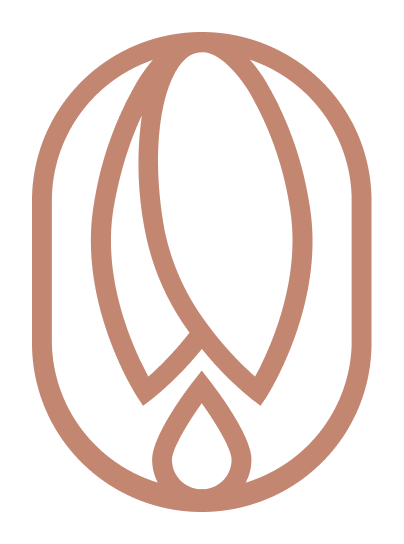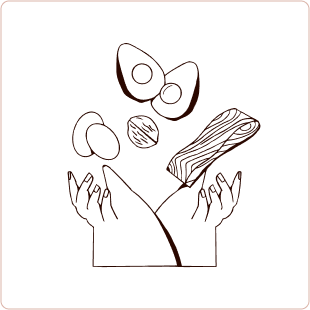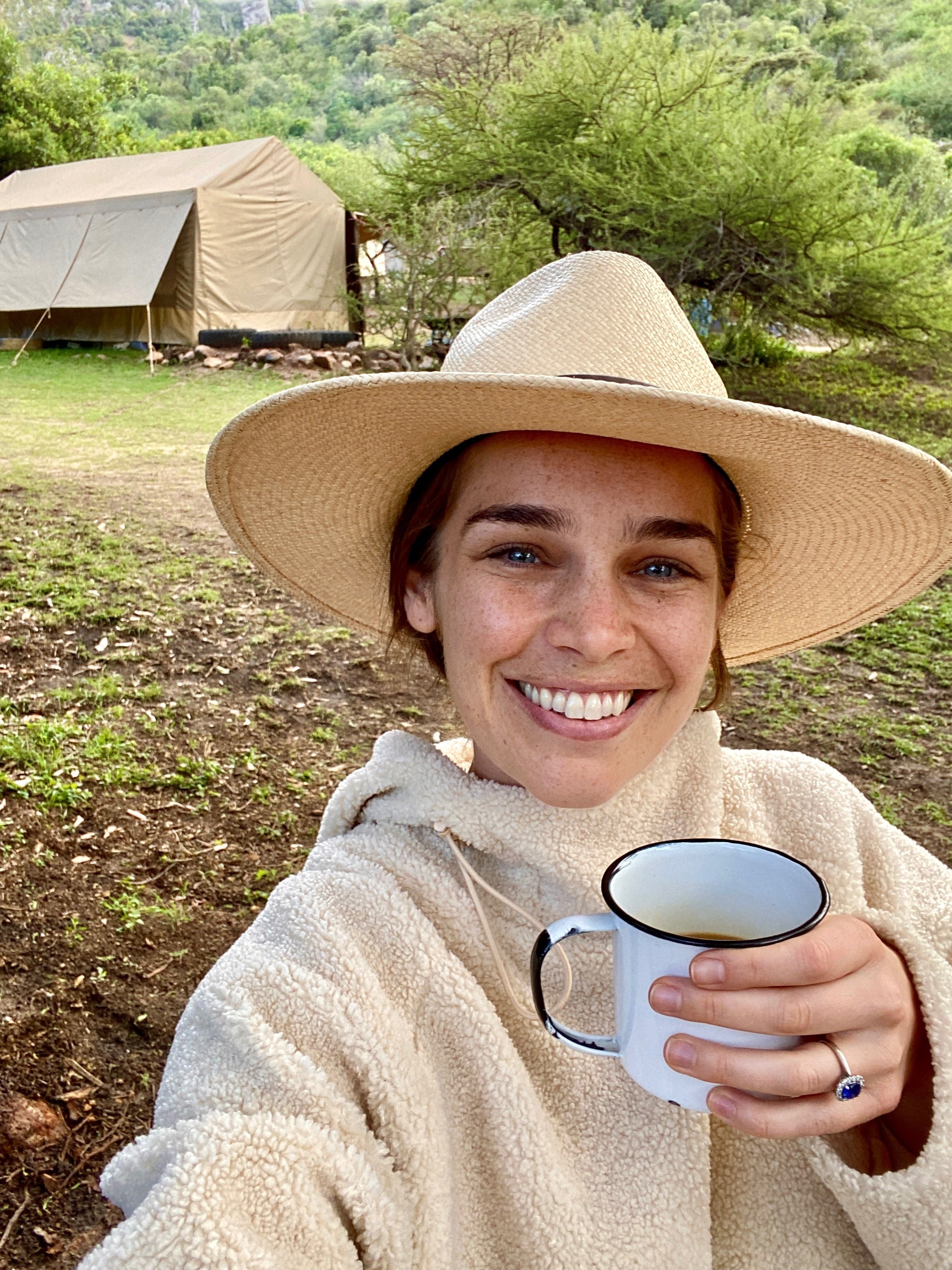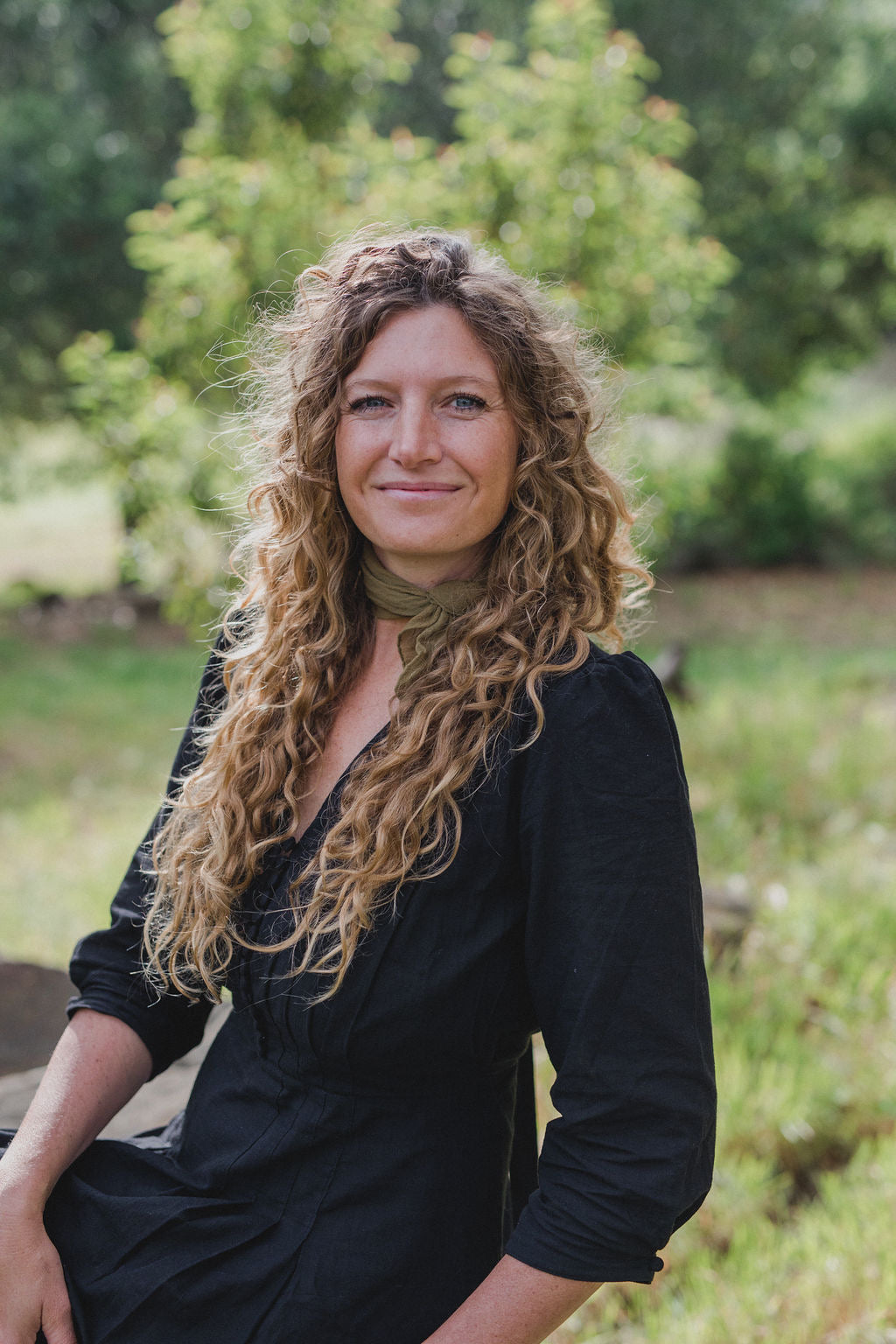Filippa Harrington is a registered naturopathic practitioner specializing in women’s health. Filippa is deeply engaged with women’s health and brings her experience of motherhood, and her doula training into individualized programs working with women in preconception, pregnancy and postpartum care. She sees clients both in-person and online.
I love how you focus on female AND male health and wellbeing in your Couples Preconception Care offering. Why is this often forgotten and why is it so important?
Forgotten is just the word here. Historically, countless traditional cultures across the globe have nourished both men and women with fertility specific foods, acknowledging the importance of both partners' health in fertility and pregnancy outcomes.
I think part of the reason that we have largely forgotten about the importance of male health is because focus is generally placed on pregnancy itself. For example, many women start taking prenatal supplements once they get the positive pregnancy test, and the old adage that a woman ‘should eat for two’ has us commonly, and incorrectly building the idea that everything important happens once a pregnancy has been achieved. The reality is that it is the ‘premester’, a time period of at least 90-120 days prior to conception that has a profoundly strong impact on pregnancy and infant health outcomes - and when we open up to this fact, we start to understand that we have to look at both parts of the equation - egg and sperm health.
Recent research has expanded upon what traditional cultures seem to have known for long - that pregnancy and infant outcomes are dependent on male, as well as female health.
We now understand that sperm health can be linked to miscarriage, placental health, and other pregnancy complications like pre-eclampsia, gestational diabetes and congenital disorders in the foetus. And in the context of fertility challenges, for far too long have women shouldered the burden on fertility investigations, dietary and lifestyle challenges - whereas male factors are at play at least 50% of the time.
And just like egg health, sperm health is certainly something we can optimise and nourish. I also hope that it feels exciting for men to hone in on how important they are in pregnancy and in the health and development of their future child.
We both share a background in Environmental Sustainability before switching gears to nourish and support women and mothers. Maybe this isn't a switching of gears at all, but a natural progression of understanding holistic care. We call this planet MOTHER Earth after all. Can you share your thoughts on why these two ideas are interconnected?
This is such a beautiful and thoughtful question, thank you Sydney. My work supporting women’s health (and men in the context of preconception) feels like a very natural progression of my work in activating for a kinder, and gentler way to co-exist on the planet. In that work I wanted to honor and preserve the way in which Mother Earth creates, nourishes and nurtures, and this is absolutely echoed in my work with women.
We can unfortunately draw significant parallels to the way women have been routinely unheard, misunderstood and under-resourced in healthcare, and the way we fail to respect and protect the planet we live on. And in my past, and in my present, it’s important to me that I work towards changing that. Our mother Earth, that provides for us day in, day out. I want her to be listened to and respected, the way I want women, mothers to feel heard and supported too.
What imbalances do you come across the most when working with postpartum mothers?
I see a lot of postnatal depletion - brain fog, exhaustion, thinning hair, fatigue, skin complaints, hormonal challenges and nervous system imbalance - a collection of symptoms that often align with depletion of key mineral and vitamin stores, and many months of sleep disturbance and in most cases, a period of time when a woman has been very last on her list. When postnatal depletion goes unchecked, it can lead to thyroid dysfunction, hormone and fertility challenges and severe mood imbalances.
It is important for women to remember that postpartum extends long beyond those first 40 days, recent research shows that peak incidence of postpartum depression occurs three years after the child is born.
I also want women to know that these symptoms should not be brushed off as ‘the norm’, and that nutrient, herbal and lifestyle medicine can do a lot to bolster you in this unique time.
As a mother yourself, can you share a little about your own postpartum season?
Whenever I am asked this question, and when reflecting upon it myself, it is this feeling of needing to hold two, often conflicting, truths at the same time. A season of absolute duality.
There is so much tenderness and adjustment in those early postpartum days - recuperating from birth, a profoundly physical, emotional and spiritual experience that stretched me to the absolute ends of myself, learning to breastfeed, finding my way as a mother, the sleep deprivation and finding a new dynamic with my partner as parents. Simultaneously, giving birth left me feeling stronger and more powerful than I had ever before and watching my daughter grow day-by day from my breastmilk alone was an awe-inspiring experience.
In general, our first few months were gentle, and soft - my partner and I resourced ourselves with intention for the acute postpartum phase. However, from 3 months and particularly around 5 months on, I found myself in a bit of limbo. My daughter woke multiple times at night for the first 2 years of her life, and at this period of time it was a good 6-10 times per night. I was feeling more exhausted than ever, but I was out of that ‘newborn’ phase, so I had this nagging feeling that I shouldn’t be feeling this way, that things should be different now. Prior to entering motherhood, I thought this was the time where I would start to have a little time for myself again, and in fact, the sleep deprivation hit me so hard that I could barely think, let alone roll out my yoga mat for some ‘me’ time.
From my clinical experience, I now know I am not alone in experiencing this. I like to be sure to check-in on my mama’s at this phase, and remind them that the need to be tender with themselves is still there, you are still allowed to ask for help and that this is a season that is anything but linear.
How does your Postpartum Program work and what are the benefits you see in your clients?
With my postpartum program, we have the first session in the early third trimester and this is where we pull together a framework for your postpartum support. I feel pretty passionate that the mid-late third trimester is really about withdrawing into one’s cocoon and releasing yourself from as much doing, planning and thinking, as possible in one’s context. I see that when these preparations are made early-on, it allows women to find that little bit more peace as they approach their due date window.
The following three sessions take place from birth up until 4 or 6 months postpartum, depending on the clients needs and wishes and call on my knowledge in naturopathic medicine, as well as my training as a doula. These sessions support women with all that may be needed post-birth, whether that’s healing from a cesarean birth, supporting milk-supply or breastfeeding challenges, managing postpartum hormone shifts or support for hair loss or other symptoms of postpartum depletion.
One session is dedicated to birth-story listening, which I have really seen be a medicine in itself.
The propensity for overwhelm in the postpartum time is high, and I see women feel a sense of ease knowing they are supported, and that they don’t have to figure it all out themselves.
What are some rituals that are grounding you in the present at the moment?
In this season of mothering a young one it can be so hard to make the time for the same kinds of lengthy and poetic rituals that nourished me pre-motherhood, and this in itself has been a journey. This was something I just couldn’t really understand until I became a mother.
In this phase for me, it’s most certainly in the small things; bathing my eyes in morning light upon waking, ensuring I am eating well, and with a balanced blood sugar by eating considerable meals and snacks, brewing myself a Nettle decoction, sitting outside and feeling the sun warm my face, tuning in to birdsong.
And in truth, I find my work, and sitting listening to women’s stories, incredibly grounding and this is something I am so grateful for. .





